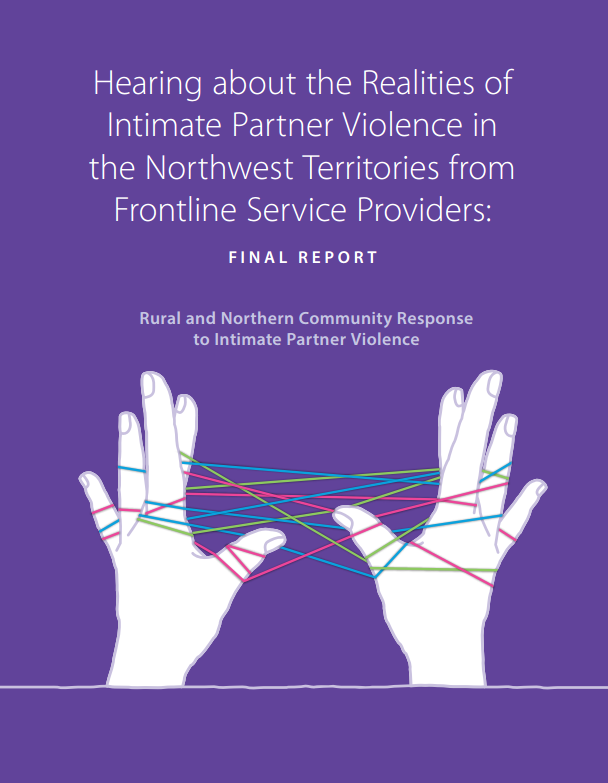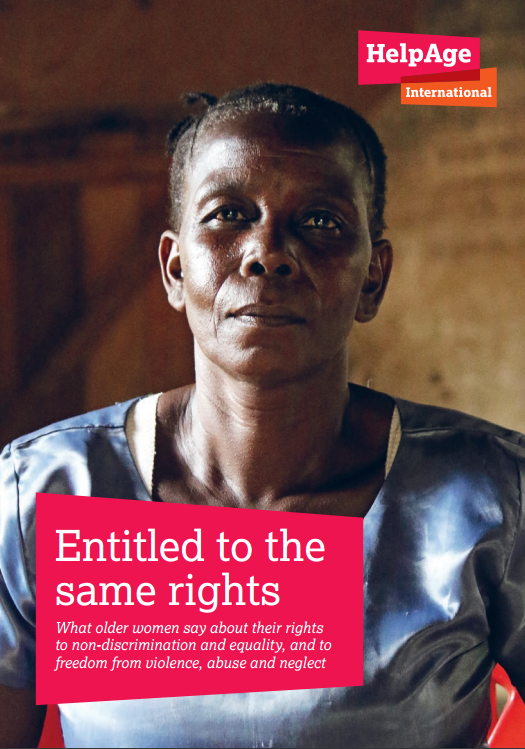
Entitled to the same rights focuses on older women's right to non-discrimination and equality, and their right to freedom from violence, abuse and neglect, reflecting the themes of discussion at the UN Open-ended Working Group on Ageing in July 2017.
Women from across 19 countries and in varying social and economic situations reported abuse, discrimination in different areas of their lives, including employment, healthcare and accessing financial services.''
Source: Help Age International
Rural and Northern Community Response to Intimate Partner Violence - Report for Territorial Stakeholders January 2017
''This report proposes an Action Plan that is specific for the Northwest Territories to encourage residents and communities within the NWT to become non-violent communities. It will require a collaborative and coordinated effort from government, community leaders, service providers and community members to reach this goal. This report will a valuable tool to help raise awareness and guide resources towards reducing IPV in the Northwest Territories.''
Source: University of Regina
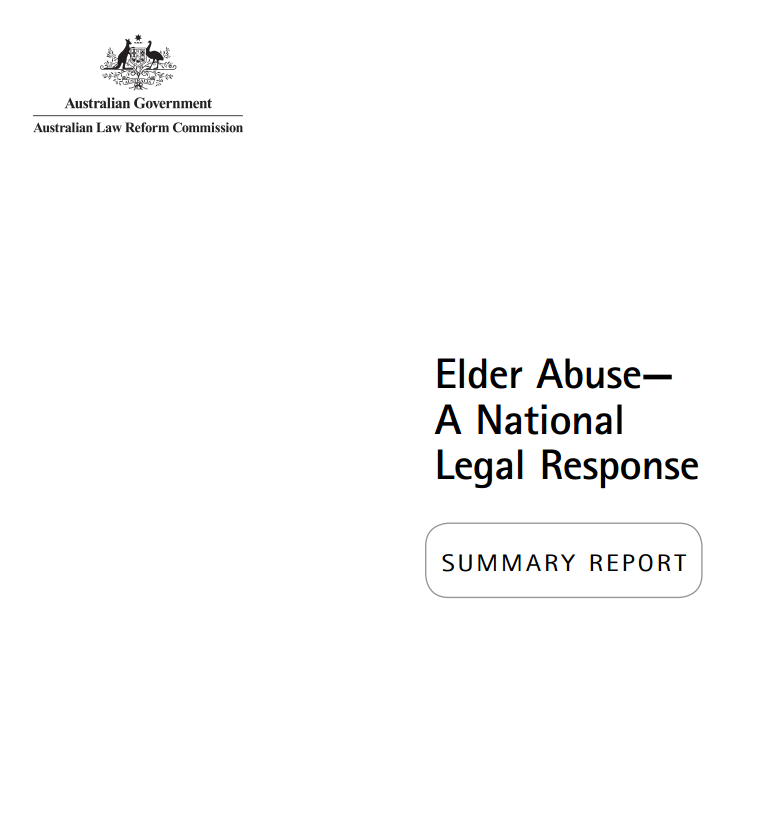
- enhanced employment screening of care workers;
- greater scrutiny regarding the use of restrictive practices in aged care;
- building trust and confidence in enduring documents as important advanced planning tools;
- protecting older people when ‘assets for care’ arrangements go wrong;
- banks and financial institutions protecting vulnerable customers from abuse;
- better succession planning across the self-managed superannuation sector;
- adult safeguarding regimes protecting and supporting at-risk adults.''
This is the summary of the report. The full report is available for purchase in book format directly from the ALRC.
Source: Australian Law Reform Commission
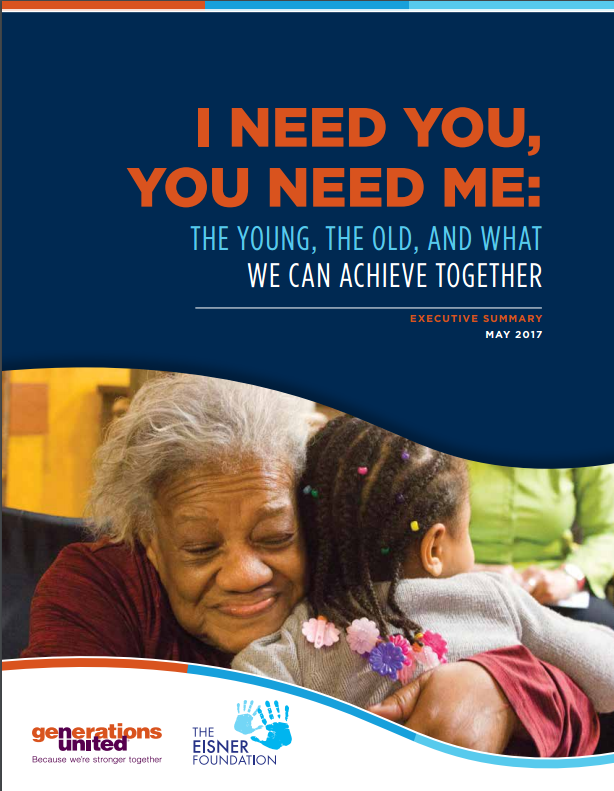
Kids spend their days at school, mostly among peers born the same year they were. Young and middle-aged adults cluster at work. And elders gather for clubs, classes, and meals that often expressly bar the young. Millions of college students and elders live in age-restricted housing, and most American neighborhoods skew young or old. Strikingly, in a recent Generations United/Eisner Foundation survey of adults nationwide, more than half of respondents—53 percent—said that aside from family members, few of the people they regularly spend time with are much older or much younger than they are. Young adults between the ages of 18 and 34 appear to be the most isolated from other generations, with 61 percent reporting a limited number of much older or much younger acquaintances.
It wasn’t always this way: in early America, the generations mixed pretty freely, even though high mortality rates in middle age kept the population of elders small. But in the late nineteenth century, Americans began to recognize both children and elders as vulnerable populations that deserved public protection, a shift that was soon reflected in new policies and institutions. Schooling became compulsory; child labor was banned; and, thanks to Social Security and Medicare, retirement became a standard phase of life.
Because of these changes, children and elders thrived as never before. But, inadvertently, the changes also consigned both groups to isolation—from mainstream society and from one another.
Fortunately, Americans still believe that kids and elders merit special treatment. A phenomenal 93 percent of adults think children and youth are a vulnerable population that society has an obligation to protect, the new Generations United/Eisner Foundation survey shows, while 92 percent believe the same about elders.
But now, we realize that protection should not equal isolation."
Download the Executive Summary
Download the infographic
Source: Generations United
The following resource is part of the Family Violence Initiative, funded by the RCMP. Find similar tools by searching for the FVIF tag or consult the list of available resources.
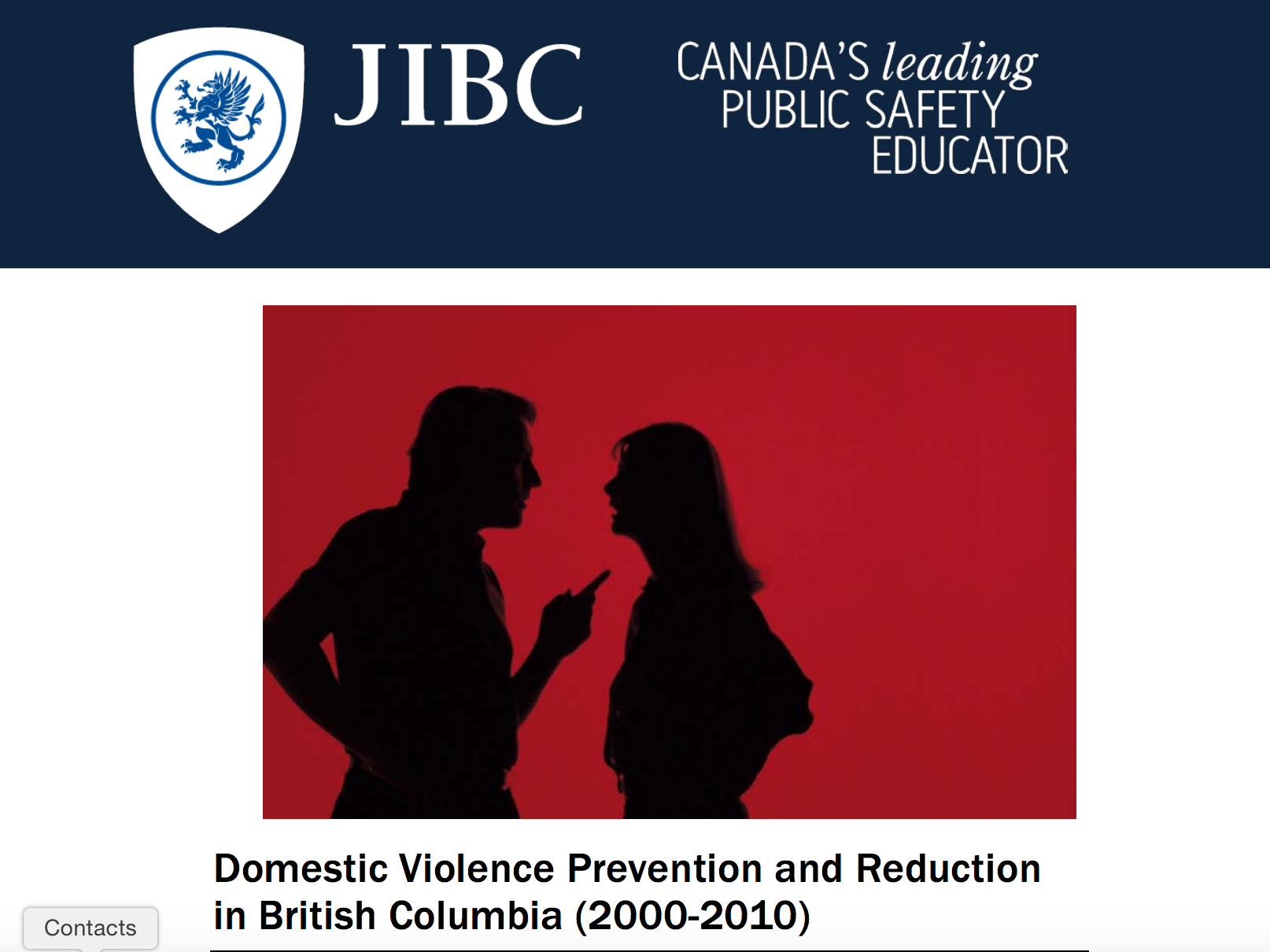 "This report reviews domestic violence prevention and reduction initiatives in British Columbia (BC), from 2000-2010, and more recently.
"This report reviews domestic violence prevention and reduction initiatives in British Columbia (BC), from 2000-2010, and more recently.
The review was undertaken to support the work of the Violence Reduction Circle, a collaborative group of researchers, policy makers, clinicians, and service providers, hosted by the Centre for the Prevention and Reduction of Violence at the Justice Institute of BC.
The review begins with a description of the process, which involved a comprehensive scan of online sources and key informant interviews with academic and community-based researchers, policy makers, service providers, and advocates. The author then outlines the various terms used to describe domestic violence against women, and justifies the use of this term to reflect the language adopted in provincial policy without losing the gendered language of feminist scholars. The report goes on to present the latest statistical data on rates of domestic violence in Canada and British Columbia, before summarizing the health, social, and economic costs of domestic violence against women, and the effects on children who witness.
The review defines three levels of prevention strategies (primary, secondary, and tertiary), which are conceived of as interdependent and mutually reinforcing strategies to prevent and reduce violence against women and to increase the safety of women and children. The body of the report reviews domestic violence prevention and reduction initiatives in BC over the past decade, including relevant legislation and policy, training initiatives for service providers across systems, and efforts to strengthen the community response to domestic violence, including public awareness campaigns. The author makes the point that key decisions pertaining to domestic violence legislation, policy, funding, and services are closely linked to changes in government and high-profile cases of domestic violence and domestic homicide that serve to open policy windows."
Source: Justice Institute of British Columbia
Page 13 of 20


